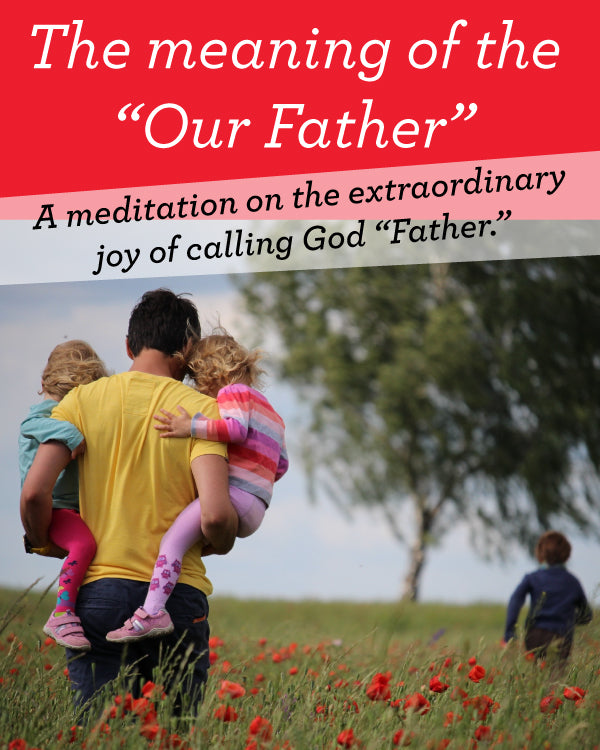The Joy of Calling God "Our Father"

First, my husband got the flu. He got better, and went off on a 6-day work trip (he’s an airline pilot). Then, one after another, ALL of the kids got the flu. I was cleaning up vomit constantly. Then...I think you know where this is going…I got it. Down for the count.
My husband had a 1-day break period in San Francisco after day four, and he surprised me by flying all the way home. Just to help me out. He ended up being home for only 15 hours. In that time, he cared for us. He put everyone to bed, did dishes, cleaned house and did laundry. By the time he returned to work, I was weak but recovered, the kids were stable, and the house in order.
My husband is by no means perfect, but in times like these, he is an amazing illustration of how God the Father wishes to be known by us.
What does the word "Father" evoke?
When my kids hear “Father” they will think of someone who commuted 10 hours round trip just to care for them while mom was sick. When they hear “Father” they think of a man who sets aside his pressing tasks to play ball, ride bikes, read books or make snacks. When they talk to him, he puts down whatever he’s doing, looks them in the eye and listens.
None of this may be a big deal to anyone else, but it means the world to me and my children. So when we hear that God is “Father” we know that He is a God who listens attentively to us, and is happy to give us all His time and energy, to care for us especially when we are sick or in some other need.
Calling God “Our Father” is not something to take for granted. To say “Father” implies a begetting, a deep relationship of love. And it is this relationship that God intended to develop with the Israelites: "Thus says the Lord, "Israel is My son, My firstborn.” (Exodus 4:22)
A Father to His people.
Even so, the Israelites saw this relationship between Yahweh and Israel as distanced, as somewhat metaphorical and spiritual. Even though the deeper father-son relationship is present in the Old Testament, it seems that the Jews as a whole did not dare embrace such a personal relationship with God.
But the Father yearned for more. He wanted a relationship not of slaves, nor merely of specially-favored nation, but an adopted sonship. God the Son came to earth and became human so that our relationship with His Father could also be bodily. Christ took on a physical body so that our whole person - body and soul - might be divinized to His own spiritual level: “The Spirit you received does not make you slaves, so that you live in fear again; rather, the Spirit you received brought about your adoption to sonship. And by him we cry, ‘Abba, Father.’” (Romans 8:15)
The freedom of the children of God.
How amazing that we are “called children of God, for that is what we are.” (1 John 3:1) We, who are so very below God, are lifted up to Him, divinized by Christ! We are invited into an actual Divine Family, with God as our Father!
When we call God “Our Father,” it should evoke everything that we know is best about Fatherhood, and we should realize that God desires us as true sons and daughters, a relationship that is deeply personal, divine and loving.
In becoming man, Jesus did so much more than fly home for 15 hours to tend to His sick family. He came from heaven to earth to die on the Cross, to rise again, to cure our sinfulness and bring us to live with Him in His Father’s house. We totally don’t deserve it, but the Father loves us unconditionally and offers everything He has for our happiness--including the Body and Blood of His own Son--to make us true heirs to eternal life.
Rebecca O’Loughlin is a Byzantine Catholic mother with 5 children (newborn to tween). She enjoys running her shop (Brushes2Halos), writing, and adventuring with her children--whether on a flight with their airplane pilot dad, or through the pages of Narnia.

